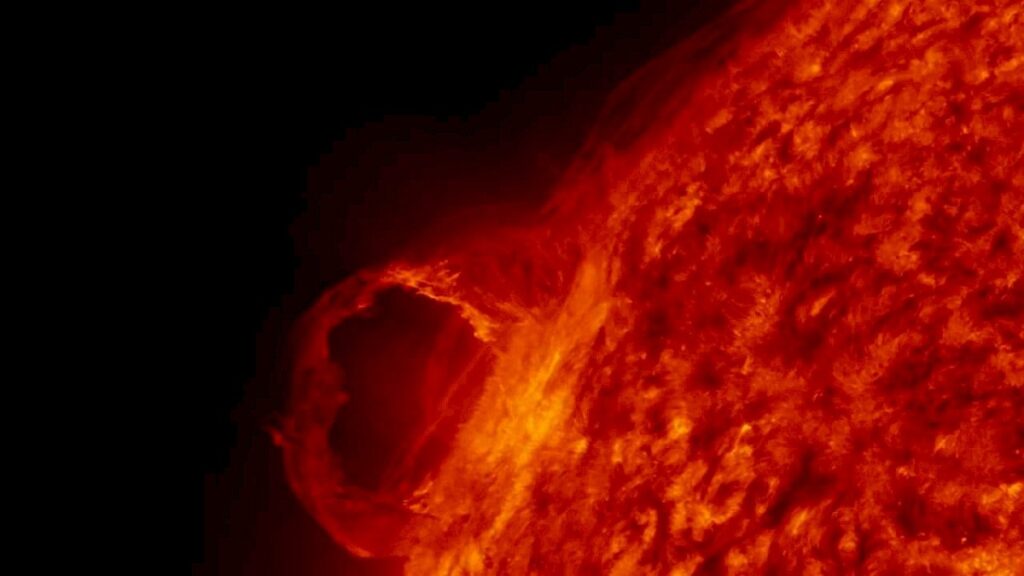A team of scientists from the Faculty of Science and Technology of the University of Coimbra (FCTUC) is using machine learning and artificial intelligence (AI) to detect flares, solar eruptions that are still unpredictable.
In this international research, developed within the scope of the SWATNet project, a database with various solar phenomena is also being built, with public access. The results obtained so far are quite promising.
According to Teresa Barata, researcher at the Department of Earth Sciences (DCT) at FCTUC and the Institute of Astrophysics and Space Sciences (IA), this project aims to develop advances in the physical understanding of the main agents of space weather on Earth, through Marie Skłodowska-Curie Innovative Training Network (MSCA ITN) in the field of heliophysics to train early career investigators.
«12 students are part of this project and are covering various areas of space weather (interaction between the sun and the earth) and one of the FCTUC students is having results in relation to forecasting pre-flares. If we are able to determine the pre-flares, it is possible, later on, to build prediction models and, in this way, we are able to issue alerts», believes the project coordinator at FCTUC.
«Solar explosions are increasingly impacting the Earth. It's not that the sun is different, but we have more technology, we are increasingly dependent on space technology. Therefore, we have to know how the sun works so as not to be affected», warns the expert, explaining that «flares are a solar explosion that can reach the earth in just eight minutes, transporting energetic particles that will affect us».
The use of neural networks to predict solar wind speed or the onset of geomagnetic storms dates back to the late 90s, but these works relied on a small, restrictive number of parameters. “The unique opportunity for this study arises from the wealth of solar observations now available and the recent major advances in the knowledge of AI and machine learning, opening new horizons for the use of these approaches also for space climate purposes”, concludes the researcher.
Furthermore, this project allows students to gain insight into the job market and the business world. SWATNet also gives the 12 students the opportunity to undertake a month-long training session at a solar observatory in Hungary, carry out exchanges between institutions and also an internship at partner companies, which in Portugal is Instituto Pedro Nunes (IPN) ESA Space Solutions Portugal.
The project consortium includes several institutions from countries such as Belgium, Finland, Greece, Hungary, Italy, Poland, Portugal and the United Kingdom, as well as several recognized companies in the field.




















Comments